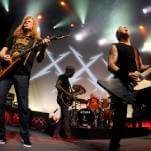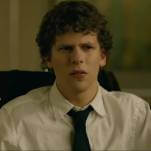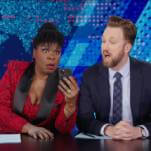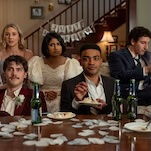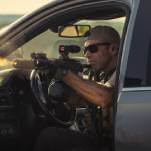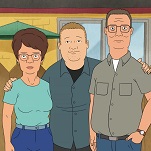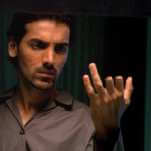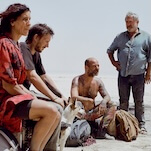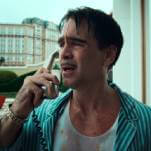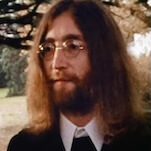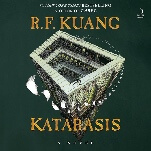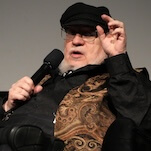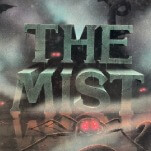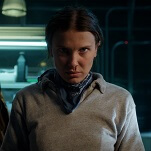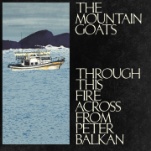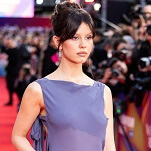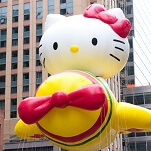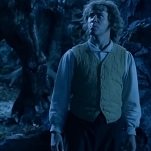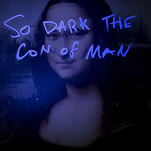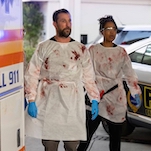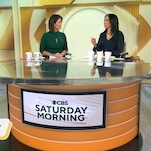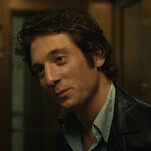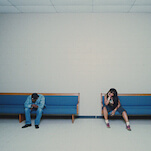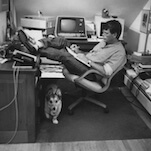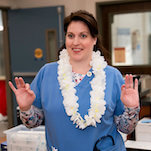Jonathan Slavin on Dr. Ken, Better Off Ted, and portraying Phil Spector
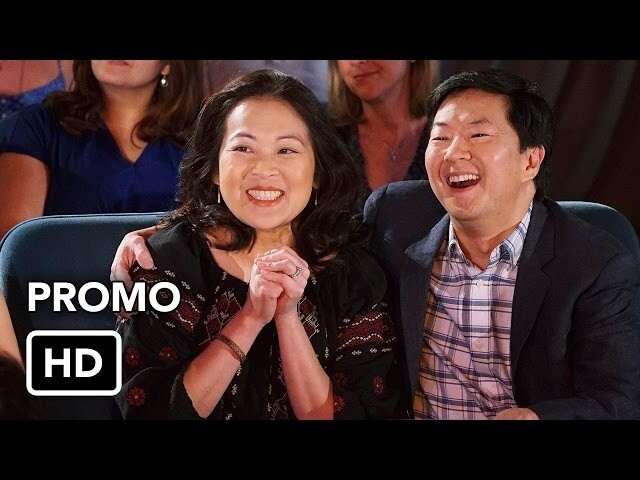
Welcome to Random Roles, wherein we talk to actors about the characters who defined their careers. The catch: They don’t know beforehand what roles we’ll ask them to talk about.
The actor: When Jonathan Slavin first arrived in Los Angeles, it was with an eye toward auditioning for any role that came up in an effort to build his resume. It was a plan that led to many one-off TV credits, but over time Slavin worked his way up to series-regular roles, including cult favorites like Andy Richter Controls The Universe and Better Off Ted. Currently, Slavin is back in the weekly sitcom grind, this time as part of the ensemble of ABC’s Dr. Ken.
Dr. Ken (2015)—“Clark”
The A.V. Club: It would seem that your character’s name is not Hector, despite rumors to the contrary.
Jonathan Slavin: Yeah, he’s not Hector. [Laughs.] He was Hector, when they were going to cast a Latin actor. But his name is Clark now. Somebody said to me, “Oh, I thought they were trying to go diverse with this.” I’m, like, “They did: they hired a gay guy! Is that not diverse enough?” But Clark is Dr. Ken’s nurse; he worships everything about Ken, and he thinks that every idea Ken has is amazing and he thinks everything he does is right and perfect. He’s kind of socially awkward. He was home-schooled, so he’s a little weird. And he’s an out gay nurse. So I’m really excited to play this guy and to find out more about him as we go along.
AVC: It’s a pretty great ensemble: besides you and Ken, there’s Dave Foley…
JS: Dave Foley, Tisha Campbell, Suzy Nakamura… It’s such a strong group of actors. It’s sort of, like, I don’t always know who’s doing the heavy lifting in a scene, because we’ve got so many people who are so good. I mean, this is a strong group. I’m really excited to work with them, and I feel really lucky to be included in the group.
AVC: With a show like Dr. Ken, where it’s a big ensemble and virtually everyone is walking in the door with a strong comedic history, do you go in looking for assurances that all of the characters are going to be serviced more or less equally by the writers?
JS: I mean, I just always trust that that’ll happen. For me, I just want to be on a good show. I’m not a “what do I get to do this week?” guy. I just want to be on a show that’s good and fun and entertaining, has a bit of a message, but also just makes people happy and that I feel proud to be a part of. And I do feel that with this show. I’m sure that we’ll all get our moments, because you’ve got a group of writers and, you know, everybody writes for everybody. But I’m just happy to be working with such a talented group. Listen, I’ll push a broom in the background if I think it’s a good project. I seriously will. I don’t care about that stuff at all. I just want to be on a project that I’m proud to be on. And I’m proud to be on this, so there you go.
AVC: It may not be possible for Ken Jeong to be more upbeat and excited about this show than he seems to be.
JS: Oh, my God, he’s the nicest guy in the world. And one of the reasons I wanted to do this so badly from the beginning was just that he was so genuinely tickled in the audition at the things that I did, and it was, like, to have a number on the call sheet who wants everybody to be funny… It’s getting rarer and rarer, you know? People want to be the only funny thing on their show. He wants everybody to be amazing. And that’s just lovely. That’s someone you want to work with.
ER (1994)—“Ron”
AVC: We try to ask about an actor’s first on-camera credit, but based on IMDB, it’s a flip of the coin as to whether it’s playing a carpenter in a movie called Somebody To Love or playing a character called Ron in an episode of ER.
JS: Okay, so that carpenter credit is actually a technical credit, not an acting credit. And it’s not me. [Laughs.] And I’ve asked them to take it off of there, and they simply will not do it. So it was, in fact, ER.
Ron was in maybe just the first five minutes of the show. He was a pizza delivery boy who got stabbed and drove himself to the ER, and he ended up driving through the wall of the ER. They pull him out of the car with jaws of life, and he’s screaming that he’s dying, and he’s flipping out completely, and they get him on a stretcher and onto the table, and they lift up his shirt, and he’s got this tiny little scratch. And they need Bactine. And that was my first role. [Laughs.] Yeah. That was it.
AVC: Still, ER isn’t a bad first role.
JS: No, it isn’t! And it was really fun. I had done a lot of theater in New York, and I think playing the stakes of that, like, insane screaming and flipping out—it’s hard to do that, but I was really young and sort of used to being all out, and I had done such wacky plays and stuff that I just wasn’t that self-conscious. Because the role was actually written for a really hunky blond preppy guy. I’m not sure why they brought me in for it, because I am none of those things. [Laughs.] But I think the blond preppy guys got afraid, and I was in [casting director] John Levy’s office, on his couch, screaming, pillows flying everywhere, and they were, like, “Okay! You can have the part! You’ve got the chops!”
AVC: So how did you find your way into acting in the first place?
JS: You know, like so many of us who end up in comedy, I was very, very shy and very uncomfortable in my own skin. I was kind of an overweight kid, and I was a very obviously gay kid, and I was really shy and just very shut down. And somehow I got cast in something in high school—like, my second day of high school—and it was that thing where suddenly I could do anything I wanted to while I was on stage. But the second the lights came back on, I was this shut-down little fat gay kid again. [Laughs.] But while I was on stage, I felt like I could sort be anything. So it was like giving me a voice.
Union Square (1997-1998)—“Albie”
JS: Yes! Okay, so I had done a couple of episodes of Caroline In The City, and the showrunners from that were working on the Union Square pilot, which at the time they were writing for an actor named Mel Gorham. She was in Smoke and Blue In The Face, and she was a very New York actor. And at the eleventh hour, they liked what I did in Caroline, and they added this character to the pilot. I mean, I had to go in and test for it, but it was kind of written with that very specific long-haired stoner thing that I was doing at the time in mind. [Laughs.] But, yes, that was my series regular role, and it was quite an education. For sure.
AVC: How so?
JS: Well, to be honest, it was one of the first times that a network experimented with something they produced in-house in such a cushy time slot—we were on between Friends and Seinfeld—and it was ’93, ’94, and nobody was really doing that then. And I think there was a preconceived idea where people were asking, “Did this show get here on its merit, or are they kind of trying to make their in-house production succeed?” So people were not kind about that show. I mean, it had its problems, but lots of things do. But, you know, people can be hard to make happy. [Laughs.] But I had a really good time. I loved the cast, and I had a ball for 14 episodes. It was great!
Robot And Monster (2012)—“Ogo”
JS: Oh, I could talk about Ogo forever. I loved that job so much. I used to say, “Mondays in Burbank make everything perfect.” We would just all be in Nickelodeon. It was my first animation and really the only thing I’ve done, but it was Maurice LaMarche and Nolan North and Cree Summer and Curtis Armstrong—these giants in that field. And somehow they hired me to play this weird little… kind of gay robot! And it was an amazing education to watch those artists just do their job. And it was also just fun to be able to be so loud and out there and big and boisterous and try stuff. Because they were amazing about, like, “Try that! Try that!” So you could just do, like, 27 different versions of the same line. It was very fun.
AVC: That’s actually one of the better answers we’ve gotten for an animated role. So often you just get, “You know what? You don’t have to wear pants, so it’s fantastic!”
JS: In a weird way, I think it’s lots and lots of work. I mean, Cree and Maurice are, like, sitting in their chairs in front of the microphone. They do this every day. They’re great at it, and I don’t feel like they’re lost their joy at it at all. But for me being new at it, they’d just clear out my little booth area, because I had to flail and jump up and down, and it was like I was acting as hard as I could to bring as much to the voice as possible. So challenging work, but fun and I just loved nothing more than walking in that dark little room with that group of people and just doing the weirdest cartoon in the history of time. [Laughs.]
Summerland (2004-2005)—“Colby Freed”
JS: There was this storyline where Merrin Dunge—who remains one of my very best friends to this day—her character was exploring other options, so they brought in this very New York, somewhat over-the-top gay guy to help Lori Loughlin’s character run her design line. She was a clothing designer. It was a set that was just a lot of fun from the minute I walked on.
I think it was when I left my first day that they said, “We’re going to have you back for our final episode this season, and I think you’re going to come back next year.” I just walked in, and Lori was, like, “Yeah, you’re here. You’re just gonna be here for awhile.” And it was one of the best groups of people I’ve ever gotten to work with. Just fun, fun, fun every day. Ridiculous amounts of laughter.
AVC: When you sign on for a role where they’re specifically asking for a flamboyant gay guy…
JS: You know, I generally don’t get cast as flamboyant gay guys, first and foremost because generally when they cast gay people, gay people cast gay characters, and they like to hire hot straight guys to play them. I’m not sure what that’s about. I would challenge the gay community to look at its internalized homophobia. [Laughs.] But that’s just me being over-political!
But they just kind of had this idea that he was this fast-talking New York guy with a bit of a heart. I mean, he talked in his first episode about how he almost died. This was 2004, so to be playing an HIV-positive gay character, I would do anything give that guy a voice. So it was one of the first times that I actually did play gay, just because it hasn’t worked out that way. Which is odd to me, but it just hasn’t. But I was really happy to be able to give that community… Well, I’m always happy to play gay, because, I mean, it’s the easiest thing in the world for me to do! [Laughs.] I’m not the best gay man in the world, but I do try. But also to be playing someone who was HIV-positive and be talking about that, that was important to me.
Free Enterprise (1998)—“Dan”
JS: We’re going back a ways, aren’t we? [Laughs.] You know, Dan was sort of right as Union Square was clearly going to go away. I read this movie, and I knew that Eric McCormack was going to play the lead in that, and Eric and I had been friends for a little while at that point. I also love giving a voice to an unheard-from community, and that was really before the Trekkie thing and the sci-fi geek thing. It was before The Big Bang Theory, so that wasn’t something we talked a lot about. My husband is a huge Star Wars fanatic—like, knows every line in every moment in every movie. Like, if I picked it up anywhere in the movie and said something, he could finish it. In all of the sequels.
So I was around that, and my best friend Liz Vassey—who’s, like, this 9-foot-tall glamazon—is such a science-fiction nerd. So I was able to kind of steal from them a little bit, but also it was fun to play someone who was a dork, but in a very different way than any of the other characters I had played up until then. He was a little bit of a social misfit, but he wasn’t a bonehead. He wasn’t inept in the same way that other characters were. He was sort of good at his job, and he had this group of friends, and they just loved science-fiction. I really liked the writers and the director, who had such a great, pure vision of what story they were telling. That’s always really attractive to me.
Grand Theft Parsons (2003)—“Mortuary Clerk”
JS: That’s actually sort of an okay story, because I was up for and went in to read and met with everybody for… I don’t remember the character’s name, but it was the stoner guy who’s sort of the second lead in that. And they were, like, “No, no, no, no, no!” [Laughs.] But the director liked me a lot and wanted me somewhere in the movie, so they just asked me to do that role. And I just did that for a couple of days, and it was really fun. Super fun. My friend Randi Hiller cast that movie, and I love her and would do anything she asks me to do.
AVC: Did you know anything about Gram Parsons going into the film?
JS: No, but I learned a little bit about him while working on it. The fact that all of that really happened… It’s ridiculous.
A Cinderella Story (2004)—“Vernon”
JS: That was again my friend Randi Hiller, who called and said, “They just wrote this character, the work’s tomorrow, we can’t even pay you your day-pay. Can you come do it?” As I said, I’d do anything for her. So I said “yes.” I showed up, I worked one day, and I have made so much money in residuals off of that movie that it’s ridiculous! [Laughs.] I’ve never seen it, because I’m just not the target audience. But it was fun, and I got to work with Regina King, who was… I mean, just everything I love about people in this industry, she was.
AVC: Your comment about the residuals reminds me of how, when we talked to Alex Rocco about A Bug’s Life, he said that he only did about eight lines as an ant, but he made a fortune after it went to DVD.
JS: It’s crazy! But kids want to own movies, and movies that speak to them, they buy those. And back then, DVD sales… I mean, this is before iTunes and streaming video, so these were all hard copies. You make good money off of that! And, you know, it’s fun to be a part of something like that, where everyone of a certain age really feels very strongly about that movie. It’s so lovely to be a part of that. But I will say that I did not remember that my character’s name was Vernon. [Laughs.]
Love & Mercy (1998)—“Phil Spector” (uncredited)
JS: Well, I didn’t make it into the final cut of the film, but there was an encounter between Brian [Wilson] and Phil. Brian idolized Phil Spector, apparently, and Phil was so dismissive and such a jerk to him. It was a one-scene role that I worked so hard on! [Laughs.] Because capturing Phil Spector… He’s such a character. I actually watched over and over again this appearance he did on The Merv Griffin Show, where it was almost tragic, actually, because in the beginning everyone was sort of prepared to really like him, and he systematically alienated every panelist. It was when Merv Griffin would have everyone up there at the same time—Eartha Kitt was up there—and he literally made every single person on that panel hate him by the time it was over. It was almost like he was a sociopath, just pushing people’s buttons and having them turn on him. Eartha Kitt finally just delivers this: “I simply will give you enough rope, and you will hang yourself.” And the audience went out of their minds, because they hated him so much by then. It was interesting. But I worked very hard on that, and it was great fun. It’s a challenge to play someone who really existed and not do the Saturday Night Live sketch version of them but try to be authentic. It was great.
AVC: Clearly, if I can find that Merv clip, I’ll be including that.
JS: Find it. For sure. It’s really worth seeing.
Slappy And The Stinkers (1998)—“Fish-n-Chip Delivery Boy”
AVC: Sometimes a title and a character name combo is a must-ask whether you know anything about the project or not. Such is the case here.
JS: Yes. Yes, yes, and yes! [Laughs.] I did that way, way back. I mean, I had long, long hair, and I’m in, like, a pirate costume. And I think, honestly, I just remember that the part was kind of nothing. He just shows up and delivers stuff. And because I used to work delivery for a lot of restaurants in New York and I hated it so much, for my audition I put so much hatred behind it, like it was crushing his soul to have to do this job, that they thought it was funny and hired me.
I just did something with this kind of nothing part, which went to a very dark place. In this kids movie about a sea lion, I was, like, about to open a wrist on these kids’ porch! [Laughs.] It was just a strong choice that could’ve backfired horribly but thankfully got me the job.
Legit (2014)—“Neil Scoby”
JS: Oh, yeah, that was fun! Jim Jefferies is really smart and sharp. That show was so dark and improv-y, which is not really a strength of mine, but I played this closeted gay casting director who almost hooked up with one of the other characters on it because I thought we were going to go have sex in the bathroom, and he thought we were going to go do coke in the bathroom, and then I end up firing Jim because he keeps making jokes about rape. It was really wrong, and it walked a line, which that show did a lot, but it’s edgy in the best possible way, because that is who Jim is, and it’s his authentic voice. It’s not one of those shows that’s edgy just to see how far they can push the line. It’s, like, this is Jim Jefferies. So I loved that. I love doing that, and I love how funny and dark and just really wrong that was.
Weeds (2008)—“Bob Warden” (uncredited)
JS: Okay, so the set up is that they kill their grandmother at her beach house. [Laughs.] And Albert Brooks is there. And Bob Warden is their real estate agent who wants to sell the house, so he shows up and sits shiva silently for seven days with this family… and then at the end of it, they go, “No, we’re going to go with someone else.” So I got to yell at Albert Brooks and be on Weeds, which… I mean, Mary-Louise Parker is one of the most amazing actors in the history of time. She’s just so good, and every take just brings it. So just to be a part of that was really fun.
AVC: And how was Albert Brooks?
JS: Amazing. Generous and lovely and funny. Everything you would want him to be. You know, it’s scary to work with someone like that, someone I’ve looked up to forever. But within 30 seconds of getting on set, it was not scary at all.
AVC: Out of curiosity, why are you listed as uncredited?
JS: Well, it’s not that I’m not credited on the show, I don’t think. It’s that Todd Louiso is an actor that I’m mixed up with sometimes, and he’s been credited with that role, even though it was me, and I don’t think I’ve ever tried to fix it. So I think I am credited on the show—IMDB has just got it wrong. IMDB also used to say that I was married to David Boreanaz’s sister! [Laughs.] I mean, I’ve been with the same guy for 21 years now! I used to say, “Uh, gay! Very out gay!“ And they didn’t change it. Finally, a journalist went to them and fixed it. There’s nothing you guys can’t do!
Homeboys In Outer Space (1996)—“Prince Bob”
JS: Okay, see… [Laughs.] That was one of the early jobs. UPN was a very young network, and it was an experience, for sure. I think there was lots that was funny on paper. There were challenges on that set, but nothing that I would take anyone to task for. It was just, like, you make a show called Homeboys In Outer Space, it’s funny, campy, and sort of broad, and I was, uh, sort of broad on it.
What you don’t see on it was that I was Prince Bob of Caucasia. That was the planet I was from. So I was in a giant blonde afro and a toga for the whole thing. So it was very broad. But James Doohan from Star Trek was on it! So that was amazing, to be, like, “I’m working with Scotty!” So it was a good job to get early on, but early. [Laughs.] You know, it was work!
AVC: As soon as the words “giant blond afro” left your lips, this officially became a must-see.
JS: No! [Laughs.] No, I promise you, you don’t need to see it. It was before I was out, because I was so new, so I just wasn’t 100 percent comfortable. It was a very homophobic environment, with a number of the crew and a number of the cast, and it just sort of fed on itself, so it was an uncomfortable situation to work in. It wouldn’t be now, because I’d be, like, “Guys, I’m a total queer, so, like, you kind of can’t talk that way around me.” But at the time I think I was either 22 or 23 and just kind of finding my way.
So it was a harder job for me, but really only because of what I was dealing with personally. I wish I had the confidence that I do now, in just being, like, “Big homo on set! You can feel that way, but you may not want to say that in front of me!” But with that said, I don’t think anybody meant anything mean-spirited by what they said. I think it was just a different time, and it was very casual. But it wouldn’t fly now. And that’s awesome.
Hard Pill (2005)—“Tim”
JS: I liked that movie. It was a movie about a gay guy who was… [Starts to laugh.] This was a fun pitch from my manager: it’s about a gay guy who’s so ugly that no other gay guys will go out with him, so he takes a pill to become straight, because women aren’t shallow in the same way that the gay community can be shallow… which is definitely something that I’ve experienced, being a gay guy and looking the way that I do! And I read it, it was a page and a half of material, and I was, like, “I get it. I get this.” And the director actually said to me, “You were my very first audition, and when you left, I said to the casting director, ‘Am I crazy? Because I think I just cast the lead in my movie with the first guy that I saw.’” And the casting director said, “Let’s see everybody else.” And at the end of the day, it was me. But I understand what it’s like to feel disenfranchised by your own community because you’re not handsome in a stereotypical way. So that was a real gritty indie kind of process that we did. I mean, they made that movie for no money, and it still did really well, and it shot beautifully. We were shooting at, like, 3 o’clock in the morning in somebody’s apartment. But it was still a really good experience.
OJ: The Musical (2013)—“Riko”
JS: That was just sort of a fun experimental project that some guys that I had done a horror film with—they had this idea to do kind of a [Waiting For] Guffman-esque thing, asking, “What if somebody’s brilliant idea was to mount a musical called Orenthal, about the O.J. thing?” And I’m a choreographer that they find in a park doing experimental dance. And by the way, Jonathan Slavin… I’m differentiating myself from the character, by the way. I don’t refer to myself in the third person often. [Laughs.] But me personally, I do not move well at all. So the idea that I’m playing a choreographer is ridiculous. But it was really fun. They would just shoot and shoot and shoot and shoot and shoot, and they would just kind of pull the best out and put that together. It was really fun. And wrong. I do a lot of wrong, dark, twisted comedy. But I like it!
Maximum Bob (1998)—“Larry Jenkins”
JS: Larry, a.k.a. Loretta. [Laughs.] That was one of my favorite jobs I’ve ever done! Although I did a lot of really dramatic theater, I’d really only done a lot of comedy in television, and Maximum Bob, it’s a series that was based on an Elmore Leonard novel that Barry Sonnenfeld and Barry Josephson were producing. So it had a very twisted angle when it came at things. And there was this guy Larry who was a Southern gay guy, and the only thing he was ever amazing at was swimming, so he pretended to be a woman to get into this underwater-ballet mermaid show at Weeki Wachee Springs. I made one of my best friends in life on that show, who I mentioned earlier: Liz Vassey. She’s one of my dearest friends to this day. And I’m super proud of it, because it was ’98, and they were telling a story that really hadn’t been talked about much.
And I had a great awkward moment, which was when they were building my tail in Florida, but I was still in L.A., so I had to stand in my living room completely naked with a tape measure and measure every part of my lower body, so that they could build the tail. It was, like, “Okay, measure around your mid-hips,” and I measured, and the wardrobe woman was, like, “Okay, now I need you to kind of tuck everything in and re-measure.” [Laughs.] I was, like, “This is the weirdest conversation I have ever had in my life!” But I was in a big gold mermail tail, diving through a ring of fire! It’s a great show. It would be a huge success now. They did something like nine episodes, and every episode was great. Beth Grant is amazing in the show.
AVC: We talked to Beau Bridges, and he definitely painted it as the one that got away.
JS: Oh, yeah, Beau was crazy good. Kiersten Warren was also in it. It was an amazing cast. I loved that show. You know, I do a lot of stuff where I love doing it and I feel lucky to have done it, but it feels like it’s a little before its time and it doesn’t find its audience. And the internet hadn’t really taken off at the time, so it’s not like it could’ve ended up on Hulu. But that’s one where I feel like, if it was canceled now, somebody like Amazon would buy it. But it just wasn’t like that then.
Karen Sisco (2003)—“Carey McAllister”
Race To Witch Mountain (2009)—“Gallagher”
JS: Race To Witch Mountain is a very small part where I’m confronting Carla Gugino’s character at a UFO convention, but I loved how passionate the guy was. Also, I had worked with Carla on a show called Karen Sisco, and I didn’t even expect her to remember me—because I was there for, like, two days, and it was years earlier—but she is such a lovely woman that the idea of going and getting the chance to work with her again was just really appealing. And she was lovely again, and she absolutely remembered me. I’m a huge fan of hers. Huge fan.
Chicago Hope (1995)—“Bike Messenger”
Melrose Place (1995)—“Flower Man”
JS: Okay, so here’s a secret for you. Early in my career, when I first moved to L.A., you just audition for any job that comes up, because you’re building a television resume, so I have this string of “insert occupation here” guys. And my thing that I would do in auditions—particularly when I had to play delivery guys—is that I would intentionally mispronounce people’s names to make the producers laugh. And that would sometimes get me the job. [Laughs.] So I did that on, like, four different things. One of them was Melrose Place, but then we didn’t end up shooting it that way. But that’s what I did in the audition. That’s one of those where I was, like, “I hope they don’t watch any of the other shows I did that for!”
But I had been out here for two or three months, and I didn’t know what I was doing, and I didn’t go to school or anything, so to get to go to a set was going to be really good education. And it was. Everybody was nice. Melrose Place was a nice place to work, and it was a nice day to have. And then I know I did it in my audition for Chicago Hope, and… I can’t remember the others. I’m pretty sure there were two others. Maybe I got cut out of them. I just can’t remember. Because I’m so old, and that was a long time ago. [Laughs.]
Andy Richter Controls The Universe (2002-2004)—“Byron Togler”
JS: That was a great show. I love that show. It was such an odd office comedy. It was written by a man named Victor Fresco, who I’ve worked with a couple of times. He also wrote Better Off Ted. But Victor Fresco, the way his head works is extraordinary, and the stories that he tells and the insight he has—particularly into corporate America—I don’t know where it all comes from, but it’s just spectacular.
That role, I read. I was coaching a friend of mine on an audition for another character, and he left and I called my agent, and I was, like, “I have to go in for this!” She said, “I think they’re testing in two days.” I said, “You don’t understand: I can get this. This is the best-written thing I’ve ever read.” And I made them see me, and I got the job. But that was just such a smart, fun show to do. Paget Brewster was great, Andy Richter was great, and so were James Patrick Stuart and Irene Molloy. She’d just come off of Grosse Pointe, and she’s just one of the most talented girls I’ve ever worked with. We only did something like 10 episodes one year and 12 the next, but it was a great experience.
Better Off Ted (2009-2010)—“Phil Myman”
AVC: Is there a favorite project you’ve worked on over the years that didn’t get the love it deserved?
JS: I think Better Off Ted. With Andy Richter a close second. Those two projects were both so ahead of their time and so smart that it was hard to see them not succeed.
AVC: So did Victor Fresco call you up for Better Off Ted and say, “I’ve got something else for you”?
JS: I ran into Victor at a protest march when the writers’ strike was happening, and he said, “If we get this resolved, I just wrote something and there’s something for you in it, so I’ll need to see you.” So I went in for it, and I thought I didn’t do a great job, but then a few days later they asked me to test.
I knew Malcolm Barrett from before, and in the waiting room, Malcolm and I were, like, “We have to get this together. We just do.”And somehow that all just worked out, and we did get it. I’m really lucky to have gotten that. And Malcolm and I are still friends to this day. He’s so talented, that guy. I could never say enough nice things about him, and you can print that. But don’t show it to him. [Laughs.]
AVC: What are your recollections of the mistyped memo episode?
JS: The week that we shot the mistyped memo episode of Better Off Ted was one of the most hilarious weeks of my life. The outtakes on YouTube are a tiny fraction of what we actually shot. The writers’ creativity lent itself very well to exploring profanity and I actually learned a few new words that week. And I’ve been around. [Laughs.] Malcolm has a run that was… I mean, I cannot imagine a single other actor being able to get through it. The glee it brings me to this day is unparalleled.
GET A.V.CLUB RIGHT IN YOUR INBOX
Pop culture obsessives writing for the pop culture obsessed.






